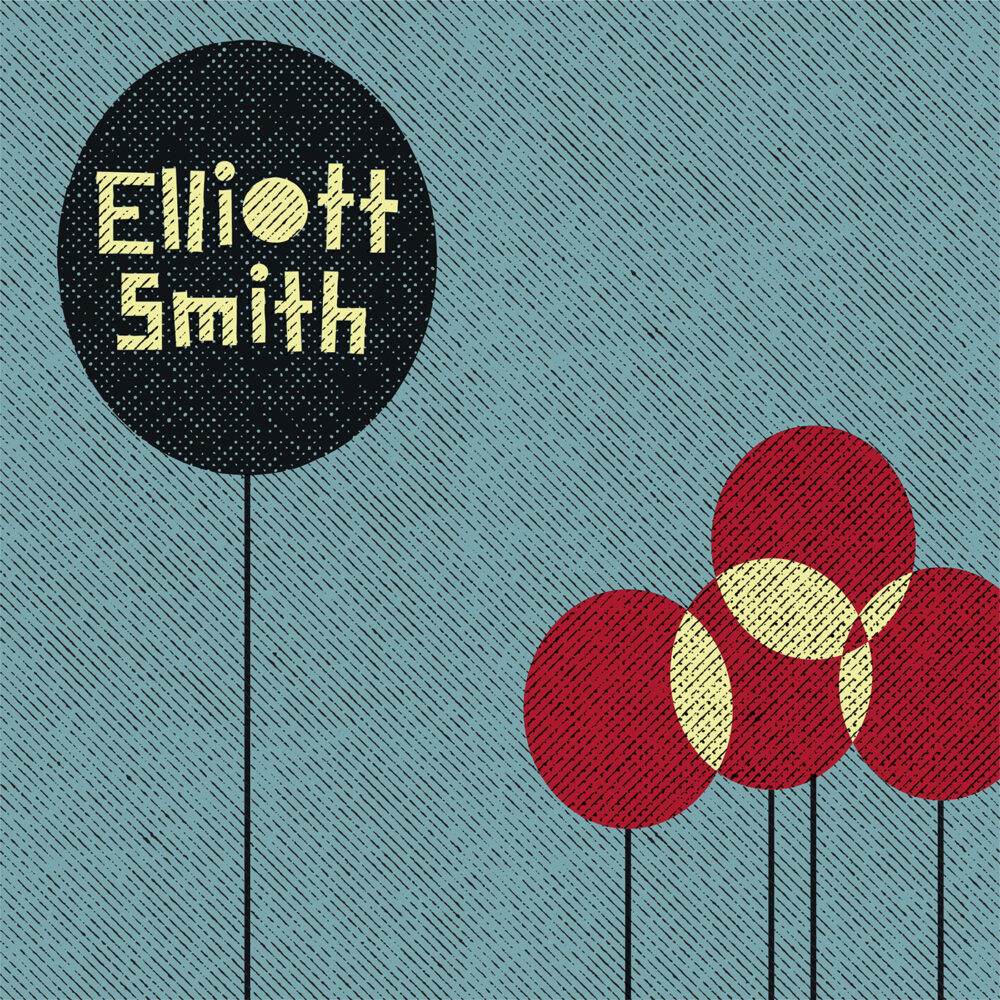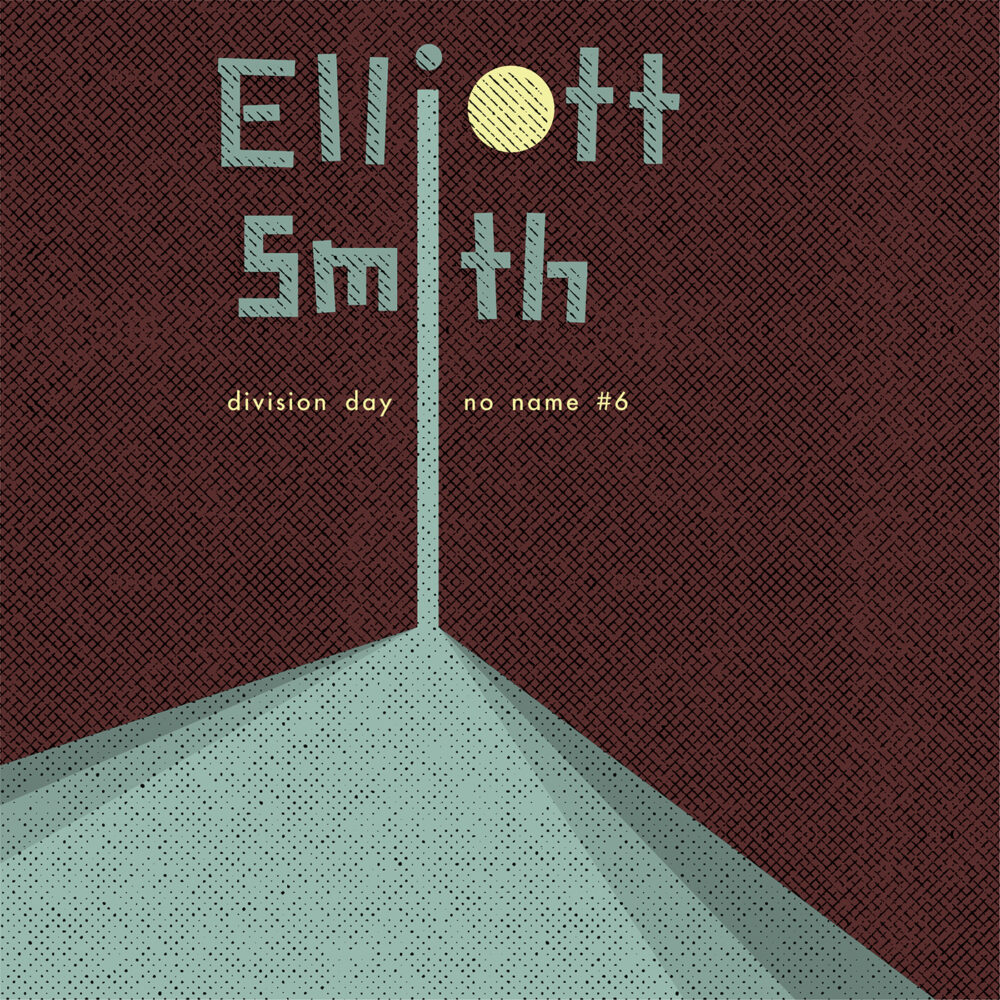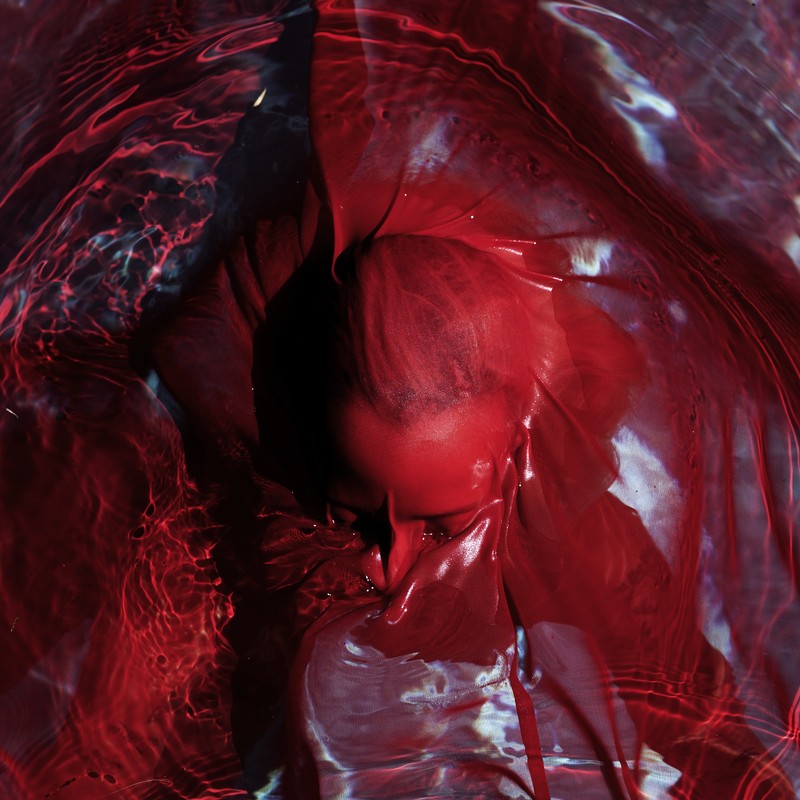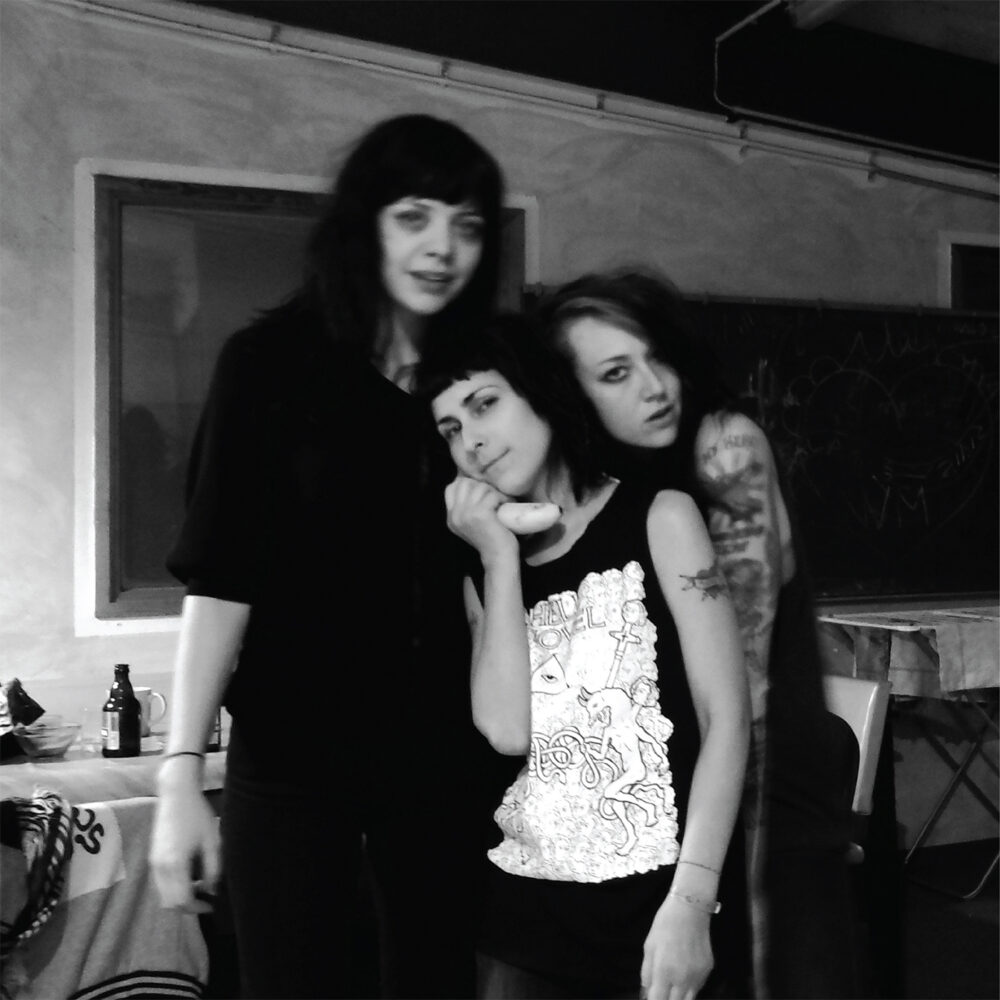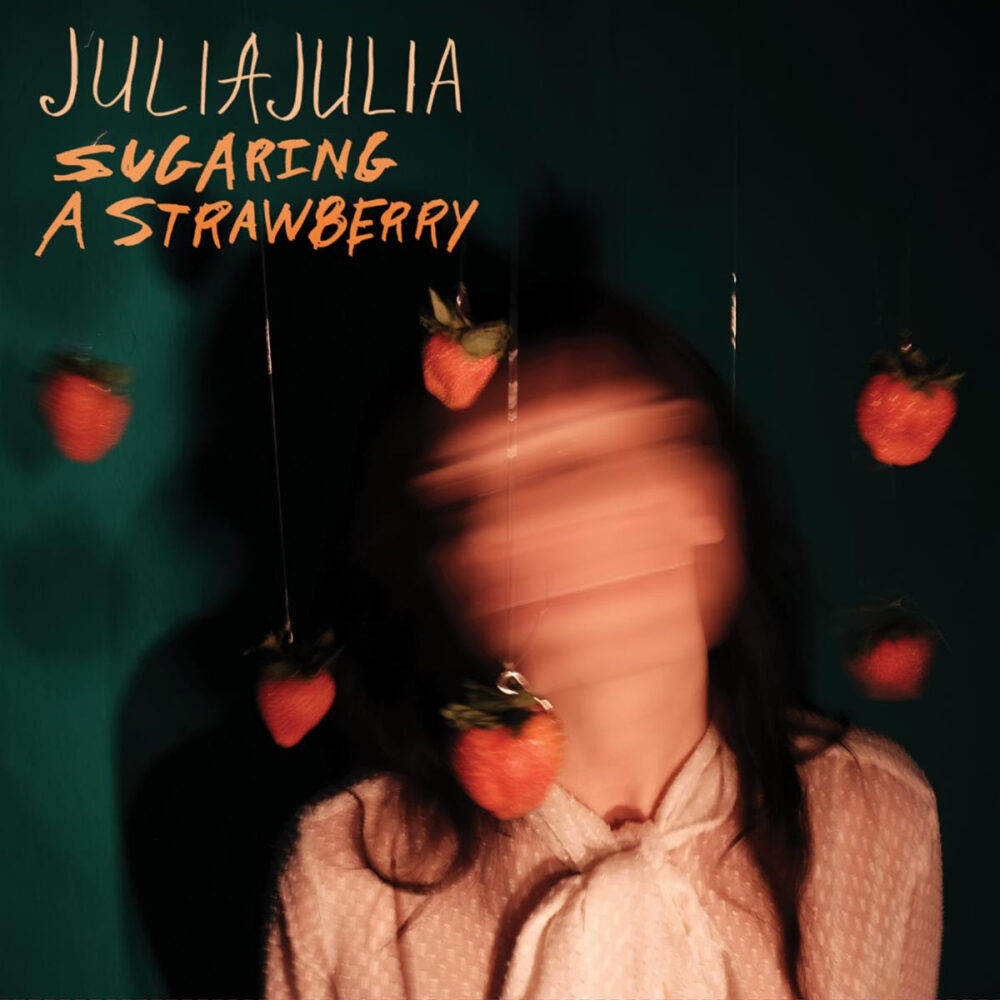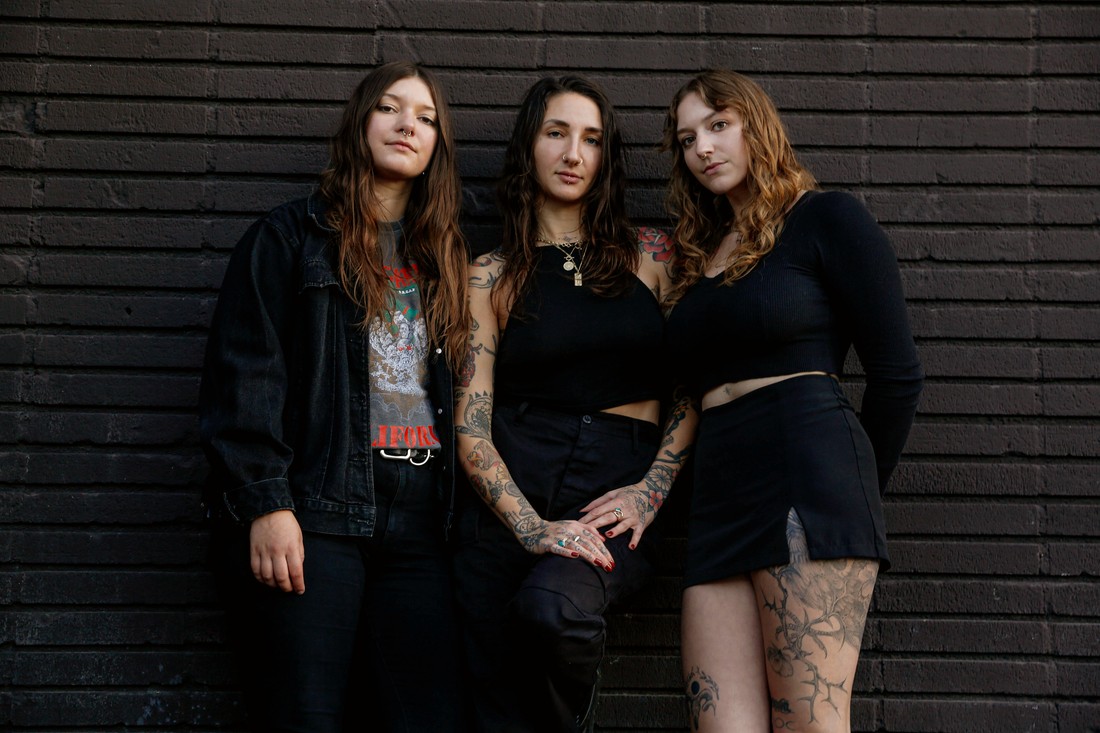L.A. WITCH – Octubre
“a characteristically hazy slice of psych rock that disorients and charms.” – SPIN, on “Haunting”
L.A. Witch’s eponymous debut album tapped into the allure of warm nights on the West Coast while hinting at the loneliness and lawlessness of living on the periphery of a country founded on a dark past. The three-piece composed of Sade Sanchez, Irita Pai, and Ellie English culled sounds from the outlaws of warmer climes, whether it was 13th Floor Elevators’ lysergic rock n’ roll or the cool hand fatalism by The Doors on songs like “The End”. It’s an album transmitting subdued revelry while also smirking at the inevitable consequences of the night.
There is no better season for these kinds of songs than the autumn when the promises of summer have abated and the nights of reckoning grow longer. L.A. Witch seized the moment by revisiting some of their early tracks and reshaping them into Octubre, a five-song EP that delves deeper into their darker side. “Because these are old songs—we don’t play them live anymore but still wanted them to be heard—this was the perfect opportunity to get experimental with sounds and textures,” Sanchez says of the EP. Despite this new studio adventurism, the songs on Octubre stay true to L.A. Witch’s vintage starkness.
The Coathangers – The Devil You Know
“Sixth studio album The Devil You Know is a collection of glorious cassette-tape jams with unfussy production, tight melodies, and precise vocal harmonies.” – PITCHFORK
In their early years, Atlanta trio The Coathangers were very much of the classic punk ethos—the band was a live entity, and the records were a document of the charisma and chaos projected from stage. But after 12 years of relentlessly touring on a steady flow of EPs and LPs, The Coathangers finally took a moment to recalibrate before diving into the creation of their sixth studio album The Devil You Know. The band regrouped to make an album that captures all the vitality of their early years while honing their individual strengths into new communal achievements. It’s a record that takes their established takes on vitriolic punk, playful house-party anthems, and heartworn ballads and melds them into a new sound that retains all their former live show glories while revealing a new level of songwriting and nuance. “The writing process was done with an open heart,” says guitarist/vocalist Julia Kugel. “Everything that came before had to go away. And we started there, at ground zero.” With each album, you could hear the individual songwriters honing their style. But with The Devil You Know, it feels like we’re hearing the first Coathangers record written as a true unit.
Cotton Jones – Paranoid Cocoon (Reissue)
“On their debut disc, Nau and McGraw craft jazzy folk peppered with pianos, strings and organs, and drive them with down-home vocal harmonies. Importantly, they’ve got lyrics to back up the gentle vibes.” – ROLLING STONE
At its debut, Michael Nau noted the presence (and absence) of time’s influence on Paranoid Cocoon. He noted, “there’s no intentional theme behind these songs. Cocoon didn’t span a lengthy duration of time, so headspace and moods tended to remain thread-like throughout. I believe there’s a familiar mood from start to finish…the lyrics work like visuals of such moods.” The 10-year anniversary reissue of Paranoid Cocoon celebrates this mood, which remains peacefully untouched and seamlessly woven into the hearts of long-time listeners and new fans alike.
Paranoid Cocoon is an album full of quiet, wooden psychedelia reflecting Cotton Jones’ casual pursuit of comfort and freedom. Michael Nau and Whitney McGraw have hearts – huge, questioning hearts – full of music that mixes elements of soul, rock and gospel into a gauzy cocoon of small-town sound. Under the mountains of Cumberland, Maryland, where creeks zigzag in the lonesome dark of the forest and a red moon hangs overhead, these songs were born of leaving, of dreams both good and bad, sung from surroundings the band has known their whole lives. In the album’s 2009 debut, NPR lauded Nau and McGraw’s ability to “create a mature, oddly woodsy feel, with strikingly evocative and despondent lyrics. Nau’s baritone, which recalls that of Lee Hazlewood, sings of forgotten happiness and missed chances, evoking charming sadness throughout the new record.” Rolling Stone noted how Nau and McGraw “craft jazzy folk peppered with pianos, strings and organs, and drive them with down-home vocal harmonies. Importantly, they’ve got lyrics to back up the gentle vibes.” Paranoid Cocoon is simple, understated perfection: they sound timeless from singing together forever.
SadGirl – Water
“SadGirl make music to soundtrack L.A. and all of its contradictions…The swooning, romantic guitar pop on the trio’s new album ‘Water’ is perfect for a city of endless possibility.” – NOISEY / VICE
With their debut album Water, Los Angeles trio SadGirl taps into the romantic and nostalgic spirit of their native city while exuding a time-tested authenticity suggesting they’ve had a peek behind the curtain of the glitzy boulevards and relentless sunshine. It’s a collection of breezy pop songs captured with the timbre of old-time recording techniques. Songs like “Little Queenie” touch upon the yesteryear reverberations and longing of a Ken Boothe ballad. Similarly, a tormented love song like “Miss Me” transports the listener back to slow dances at a previous generation’s sock hop, only to be subverted by a chorus of “miss me with that bullshit.” It’s as if guitarist/vocalist Misha Lindes, drummer David Ruiz, and bassist Dakota Peterson want to conjure an idealized past only to remind us of innocence lost.
“If you want to learn about water, go to the desert.” It’s a piece of wisdom that made an impact on Lindes. “Here we are in Los Angeles, a desert, ping-ponging between drought and El Niño. This record is an attempt to share a small portion of my experience growing up and living here,” said Lindes. “It’s basically about the fluidity of water and its power and importance.”
The Paranoyds – Hungry Sam
“one of L.A.’s most established DIY bands” – V MAGAZINE
Your phone, your TV, your computer – who (or what) is watching you? It’s an oft-asked question in the digital age and one that The Paranoyds echoed when it comes to the origins of their name. Part of a generation immersed in over sharing and ease of surveillance, The Paranoyds know better than anyone, it’s scary out there. But the band’s fearless pursuit of a good time won’t stop them from crafting the kind of gritty, Southern California garage rock that refuses to hide.
The Paranoyds’ debut release on Suicide Squeeze offers a taste of what The Paranoyds have been crafting. The Los Angeles four-piece of Laila Hashemi (keyboardist-vocals), Lexi Funston (guitars/vocals), Staz Lindes (bass/vocals) and David Ruiz (drums, vocals) share a mission to craft songs with the gritty spunk and dark playfulness of a cult-classic splatter film. “Hungry Sam” is a binge-worthy feast of chugging guitars and belly-rounded drums. B-side “Trade Our Sins” is a cautionary slowdance fit for the end of the night or the end of the world. Their self-described “sister vocal act” shares the snarling, over-it-but-totally-into-it vocals throughout their songs, moving from dirty surf-pop guitar jams to power-packed garage rock.
Death Valley Girls – Dream Cleaver
“Their latest single is a hypnotic, cosmic trip…” – KEXP
Based on your current station in our technological age, Death Valley Girls’ fusion of feral proto-punk, ‘70s scuzz dirges, and third eye mysticism is either completely at odds with your worldview or utterly revelatory. Words like “retro” or “old school” convey a starry eyed nostalgia that do a disservice to the band’s harnessing of primal instrumentation and communal reverberations—if something in Death Valley Girls’ sound harkens to the past, it’s only in an attempt to dislodge us from the static of the present. That dedication to lifting the veil of modern illusions continues with their current single “Dream Cleaver”—a rousing anthem in praise of psychonaut and ethnobotonist Terrence McKenna, his research on “the spirit molecule” DMT, and the possibility of trans-dimensional travel. Lest one thinks that this is some blissed out cosmic ride on new age synth pads, be aware that “Dream Cleaver” is an unapologetic stone-cold rocker—an unabashed orgy of Farfisa organ hooks, Larry Schemels’ hypnotic and propulsive guitar chords, hallucinatory sax lines, and Bonnie Bloomgarden’s call-to-arms vocals. If you need to get elevated, take a three-minute dose of “Dream Cleaver.”
The Paranoyds – Carnage Bargain
“…scowling, winking garage rock. Full of lethal riffs, but toying with clap-along twee, The Paranoyds’ surfy, Riot Grrrl grunge splits the difference between Bratmobile and The Go-Go’s, with a little Blondie thrown in…[‘Girlfriend Degree’ is] a mission statement and a battlecry for a band equally interested in laughing as the world burns, and fixing it.” – PAPER
The Paranoyds’ beginnings can be traced back to a friendship forged between Staz Lindes and Laila Hashemi in their teens. With the additions of Lexi Funston and David Ruiz, the band found the personnel for their sonic balance of jubilant energy and foreboding undercurrents. Carnage Bargain captures this chemistry through guitar-and-keyboard, genre-mashing weirdness on “Laundry,” the fever-dream kitsch of B-52s on “Ratboy,” krautrock’s motorik groove on “Hungry Sam”, and Blondie on the sweet-and-salty highlight “Courtney.”
Title track “Carnage Bargain” is a perfect example of the band delivering scathing lyrical observations under the guise of a quirky pop hook. The notion of rejecting the status quo and creating your own destiny is evident on the lead single “Girlfriend Degree,” which the band calls an ode to “being a badass woman who’s taking time to make sure she’s doing things for herself.” The band may be paranoid, but they offer a solution to our modern ills through the act of being an inspiring, independent, and unflappable force.
